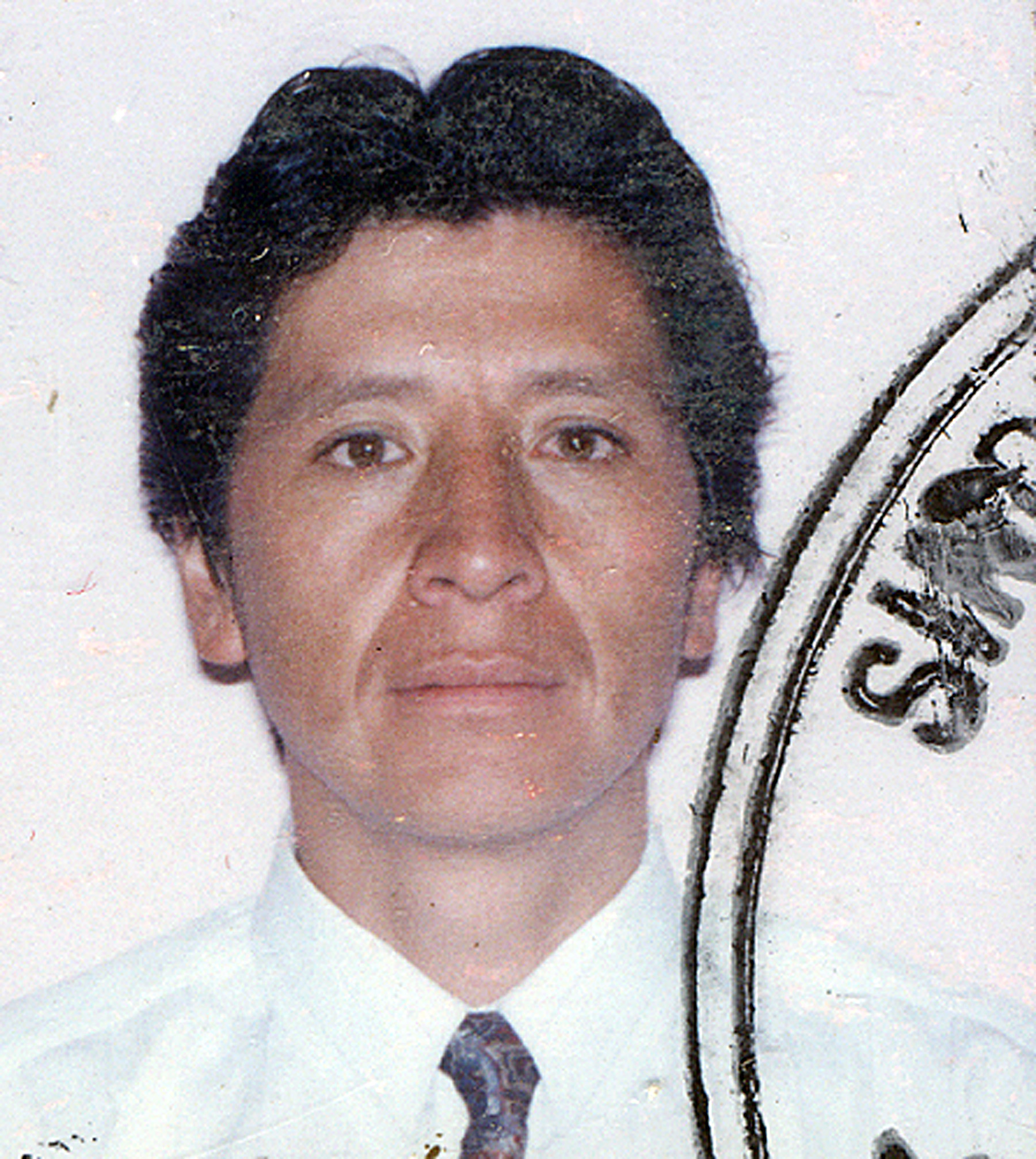
July 29, 2001
Case: Juan Carlos Encinas
|
1400 days and every night:
Mayo 1, 2005
Jorge Elías
During 46 months, Betty Falcón only knew that the killer of her husband, Juan Carlos Encinas, a free-lance journalist, had been sentenced to six years and two months in prison. Between July 29, 2001 and May 29, 2005, exactly 1,400 days had passed during which the widow, from humble means, had become engulfed in a web of impunity bordering on injustice.
In the beginning there had been eight arrested. One of them, Eugenio Limachi Mamani, had signs on his right hand of having fired the gun that injured Encinas who died while being transported to a clinic where he was going to be treated, according to police experts. They sentenced him to six years and two months in prison, but he never served his sentence.
He, as well as another three people involved, paid bail in the amount of 7000 bolivianos (a little less than US$900) each and as Betty Falcón said, “nothing else was ever known of them”. The others remained behind bars, but Limache Mamani, “The Principal”, according to her, “did not appear”.
Encina, her husband, was killed at close-range during a confrontation between rival groups in Catavi, in Los Andes Province, some 50 kilometers from La Paz. He was carrying a camera and tape recorder, as well as a jacket with which, Betty Falcón said, was easy to identify him as a journalist.
During the commotion there was no crossfire, but only nine shots. One of them injured the arm of Juan Mario Ticona Limachi, a resident of Catavi; another was injured in the area below the abdomen, Encinas, 39 years old. They were 9-millimeter bullets. The judge, at the prosecutor’s petition, ordered the immediate arrests of eight people, later released on bail, and later ordered the arrest of nine others, among them, Limache Mamani.
Betty Falcón is a partner at the Cooperativa Multiactiva Catavi Limitada, an activity she says that “doesn’t make any income”, and therefore she works part-time at a hospital maternity ward. At times, she isn’t paid in two or three months.
A ruined camera
In Catavi, a humble town of a little more than 200 residents, the exploitation of limestone led to the confrontation in which Encinas died. One year before, on July 5, 2000, his camera had been destroyed to pieces while he was trying to shot for Enlace news program on Channel 21 in La Paz.
After the confrontation in which he died, Criminal Court Judge Alfredo Jaimes, from El Alto Supreme Court, ordered, at the request of prosecutor Waldo López Paiva, the arrest of 8 people, later released on bail. Later there remained behind bars Eugenio Limachi Mamani, Edgar Mamani Limachi, Julio Limachi Mamani, Félix Loza Mamani, Teodoro Limachi Mamani, Juan Laruta Quispe, Agustín Mata Condori, and Juan Francisco Limachi Quispe.
In the interim, Betty Falcón warned that they had changed judges and prosecutors and the detainees were being released upon paying bail. The curious thing, nonetheless, has been the case of Limachi Mamani, sentenced to six years and two months in prison, but, a bit later, was released on bail.
The trial coincided with abrupt changes in the Bolivian government under strong pressures and tensions: the end of the administration of President Jorge Quiroga (successor to the deceased Hugo Bánzer), the rise to power of the ill-fated Gonzalo Sánchez de Lozada, the gas crisis (with pipes being cut and frequent protests) and, after that, the sudden rise to power of Carlos Mesa and the debates on the laws on hydrocarbons and regional autonomy.
In a political limbo, or in the crater of a volcano, the Bolivian justice system did not show any haste in solving the murder of Encinas, a shameful situation, especially for Betty Falcón, mother of three children who went back to live with her parents in La Paz. She is not able to rent a place, she said.
It was 46 months, or 1400 days, downhill, like in Catavi, a rocky landscape, horizontally flat and vertically resigned to the case that, as so many in Latin America, has been at the mercy of political and social leaders that sometimes join the injustice in impunity.
|